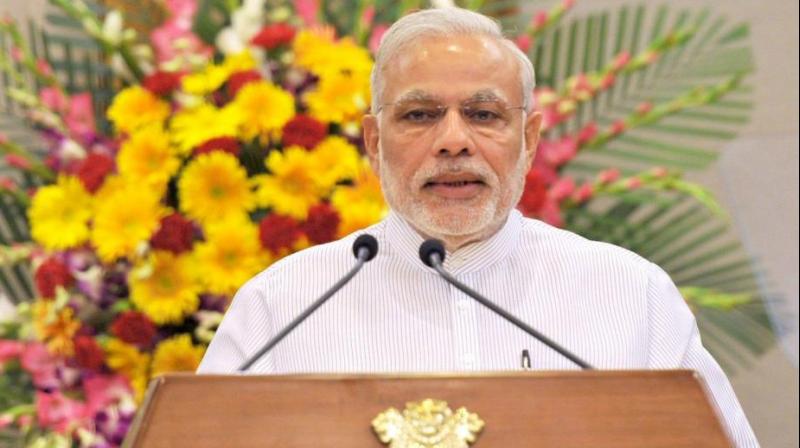Neighbourhood focus, no Pak at Modi oath
Modi perhaps felt he could get things going as he was presiding over a BJP with its own strength in Parliament.

The first time Narendra Modi became Prime Minister in 2014, he sought to make a splash by inviting Saarc leaders to his swearing-in ceremony. This was considered a great diplomatic move by the leader of a Hindutva party who was coming to power on his own terms in Parliament, without being hemmed in by allies.
Who better than a leader from the BJP to attempt peace-making with Pakistan? This was the sense in the air. Similar thoughts were voiced when Atal Behari Vajpayee was PM, but we had the Kargil conflict willed by the Pakistan Army.
Relations with Pakistan need to be maintained, hopefully on peaceful terms, as hostility in the neighbourhood is a bad augury for a nation’s international relations. Neighbourhood antagonisms cast a long shadow on a country’s foreign policy. New Delhi’s dealings with Islamabad are fraught due to history going back to Partition. Mr Modi perhaps felt he could get things going as he was presiding over a BJP with its own strength in Parliament.
Alas, things didn’t go the way the PM may have hoped. A spate of terrorist attacks, including the one at Pulwama as recently as February this year, snuffed out chances of good-neighbourly relations. The downward slide could not be arrested even with the arrival on the scene of Imran Khan as Pakistan’s new PM in 2018 as Mr Khan was not seen as an anti-India hawk. But no Pakistani leader is autonomous of the Pakistan Army.
It was evident Pakistan couldn’t be invited to Mr Modi’s swearing-in in 2019. Bilateral ties are still sour. In fact, the BJP’s campaign in the recent Lok Sabha election, which has given Mr Modi a second term, was conscientiously built around the theme of “nationalism”, with the Pulwama terror attack and India’s counterstrike at Balakot becoming the signal factor.
It is noteworthy that in Mr Modi’s first term, relations had deteriorated with Saarc neighbours Nepal, Sri Lanka and the Maldives, not just Pakistan. Was there any point really in inviting a clutch of countries to the swearing-in of a head of government?
To avoid inviting Pakistan until bilateral ties with Islamabad return to an even keel, Mr Modi has chosen to invite the leaders of the Bimstec countries to his swearing-in for the second term. These are basically nations in the proximity of the Bay of Bengal. Several are members of Saarc too, and Thailand and Myanmar are members of Asean. Officially, it has been said that this aligns with the “neighbourhood first” maxim. This is tautological for it is a given that ties with neighbours are especially significant.
We could well have skipped inviting any country for the PM’s oath-taking without hurting our diplomatic relations. But the point seems to be to make a show of things!

